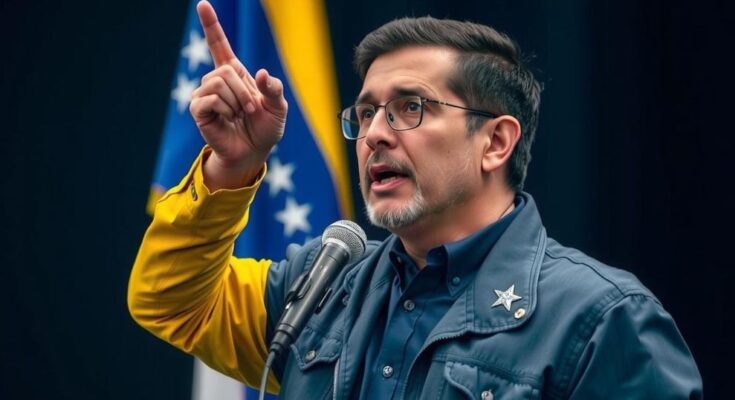The U.S. recognized Edmundo Gonzalez as Venezuela’s president-elect after disputed elections where Maduro was declared winner. Secretary of State Blinken emphasized the need for respecting voters’ will, while Gonzalez claimed he received double the votes. The electoral authority faced criticism for lack of transparency, and international scrutiny persisted despite Maduro’s planned swearing-in.
In a significant political development, the United States government formally recognized Edmundo Gonzalez, an opposition candidate, as the “president-elect” of Venezuela, months after President Nicolas Maduro’s controversial electoral victory proclamation. U.S. Secretary of State Antony Blinken’s acknowledgment stressed the necessity for the respect of Venezuelan voters’ will, highlighting the ongoing disputes surrounding the legitimacy of the July 28 elections. Meanwhile, Gonzalez asserts that he secured double the votes of Maduro in the disputed election, based on data compiled by the opposition. Following the election, the Venezuelan electoral authority, dominated by Maduro supporters, declared the President as the victor, yet failed to provide exhaustive vote counts unlike in previous elections. In contrast, opposition leaders, including Gonzalez, obtained data from 80 percent of the voting machines which indicated that the former diplomat had won decisively over Maduro. In response to his recognition as “president-elect,” Gonzalez expressed gratitude and emphasized the significance of this acknowledgment for Venezuelans’ aspirations for change. However, Gonzalez was forced into exile shortly after the elections amid legal threats related to the publishing of voting records. Venezuelan authorities, including Foreign Minister Yvan Gil, have vocally dismissed U.S. claims and have instead engaged in personal attacks against U.S. officials. Nonetheless, both the United Nations and the U.S.-based Carter Center have flagged the election’s lack of transparency, certifying that the reported results do not exhibit credible validation. Additionally, Colombian President Gustavo Petro recently altered his stance on the elections, labeling them a “mistake.” On the other hand, Maduro is preparing for his next presidential term, scheduled to commence on January 10.
The situation in Venezuela has been marked by political instability, particularly surrounding the electoral process, which has been criticized for its lack of transparency and fairness. In the wake of the disputed July elections, international observers, including entities from the United Nations, have raised concerns about the integrity of the electoral process. The Venezuelan electoral authority declared President Nicolas Maduro the winner, a decision challenged by opposition figures and various international leaders. The growing discontent among the populace and the political opposition prompted increased scrutiny from foreign governments.
The U.S. recognition of Edmundo Gonzalez as president-elect reflects a notable shift in the international perception of Venezuela’s electoral legitimacy. This decision underlines the contentious nature of the political landscape in Venezuela, characterized by allegations of manipulation and a lack of transparency in the electoral process. As international attention continues to focus on Venezuela, developments surrounding the opposition’s claims and Maduro’s administration remain critical to the future of governance in the country.
Original Source: www.voanews.com




